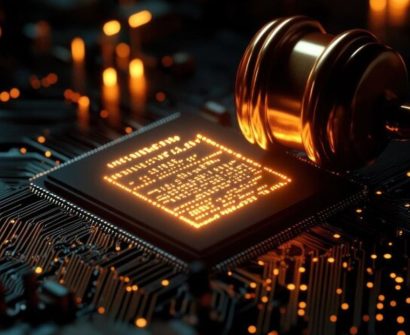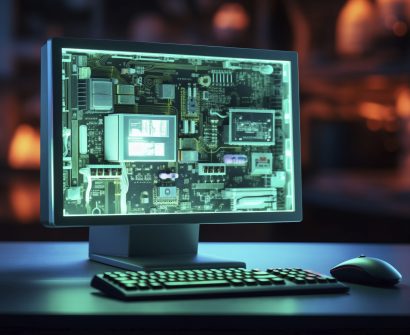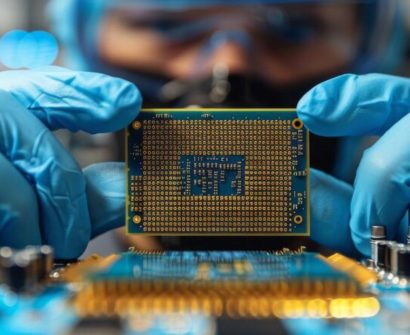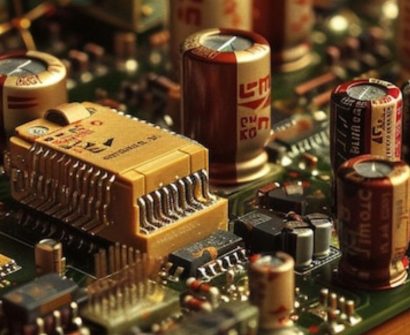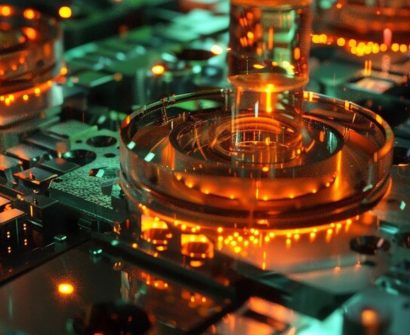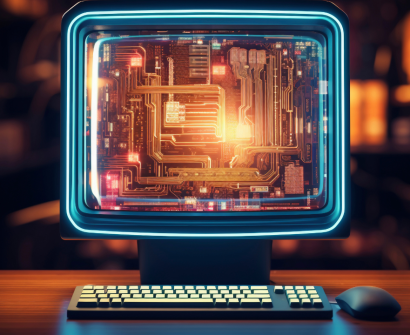
In today’s technologically advanced world, Very Large Scale Integration (VLSI) technology has become a cornerstone of innovation, enabling the development of smaller, faster, and more efficient electronic devices. VLSI technology involves the integration of thousands, or even millions, of electronic components onto a single microchip. Its applications span a broad spectrum of industries, revolutionizing the way we live, work, and communicate. In this blog post, we’ll take a journey into the fascinating world of VLSI technology and explore its wide-ranging applications.
- Consumer Electronics
One of the most common applications of VLSI technology is in consumer electronics. From smartphones and tablets to smart TVs and gaming consoles, VLSI chips power these devices. The ability to pack a significant amount of functionality into a small form factor is made possible by VLSI, leading to portable and feature-rich gadgets that have become integral parts of our daily lives.
- Healthcare
In the healthcare sector, VLSI technology plays a vital role in the development of medical devices. It enables the creation of compact and precise equipment, such as pacemakers, insulin pumps, and MRI machines, which help diagnose, monitor, and treat medical conditions more effectively. VLSI chips are also used in wearable health devices that collect and transmit data for real-time monitoring of patients’ health.
- Automotive
Modern vehicles are equipped with increasingly sophisticated electronics, thanks to VLSI technology. From engine control units (ECUs) to advanced driver assistance systems (ADAS) and infotainment systems, VLSI chips enhance safety, improve fuel efficiency, and provide a better driving experience. Self-driving cars, a burgeoning technology, heavily rely on VLSI chips for processing complex sensor data and making real-time decisions.
- Aerospace and Defense
In the aerospace and defense industries, VLSI technology is indispensable for mission-critical applications. It’s used in navigation systems, radar systems, communication equipment, and encryption devices. The ability to withstand extreme conditions and maintain high performance makes VLSI technology crucial for ensuring national security and exploring outer space.
- Communication
The backbone of modern communication networks, including 4G and 5G, relies on VLSI technology. It powers base stations, routers, and switches that facilitate high-speed data transfer and seamless connectivity. VLSI chips are also used in satellite communication systems, enabling global coverage for voice and data transmission.
- Industrial Automation
In industrial automation, VLSI technology is instrumental in creating intelligent machines and systems. Programmable Logic Controllers (PLCs) and embedded systems equipped with VLSI chips are used for process control, robotics, and monitoring equipment performance. This enhances efficiency, reduces downtime, and ensures consistent product quality.
- Internet of Things (IoT)
The Internet of Things (IoT) is transforming our homes and cities into interconnected environments. VLSI technology enables the development of tiny, low-power chips that can be embedded in everyday objects to collect and transmit data. Smart thermostats, wearable devices, and environmental sensors are just a few examples of IoT applications empowered by VLSI chips.
Conclusion
Very Large Scale Integration
Stop generating

